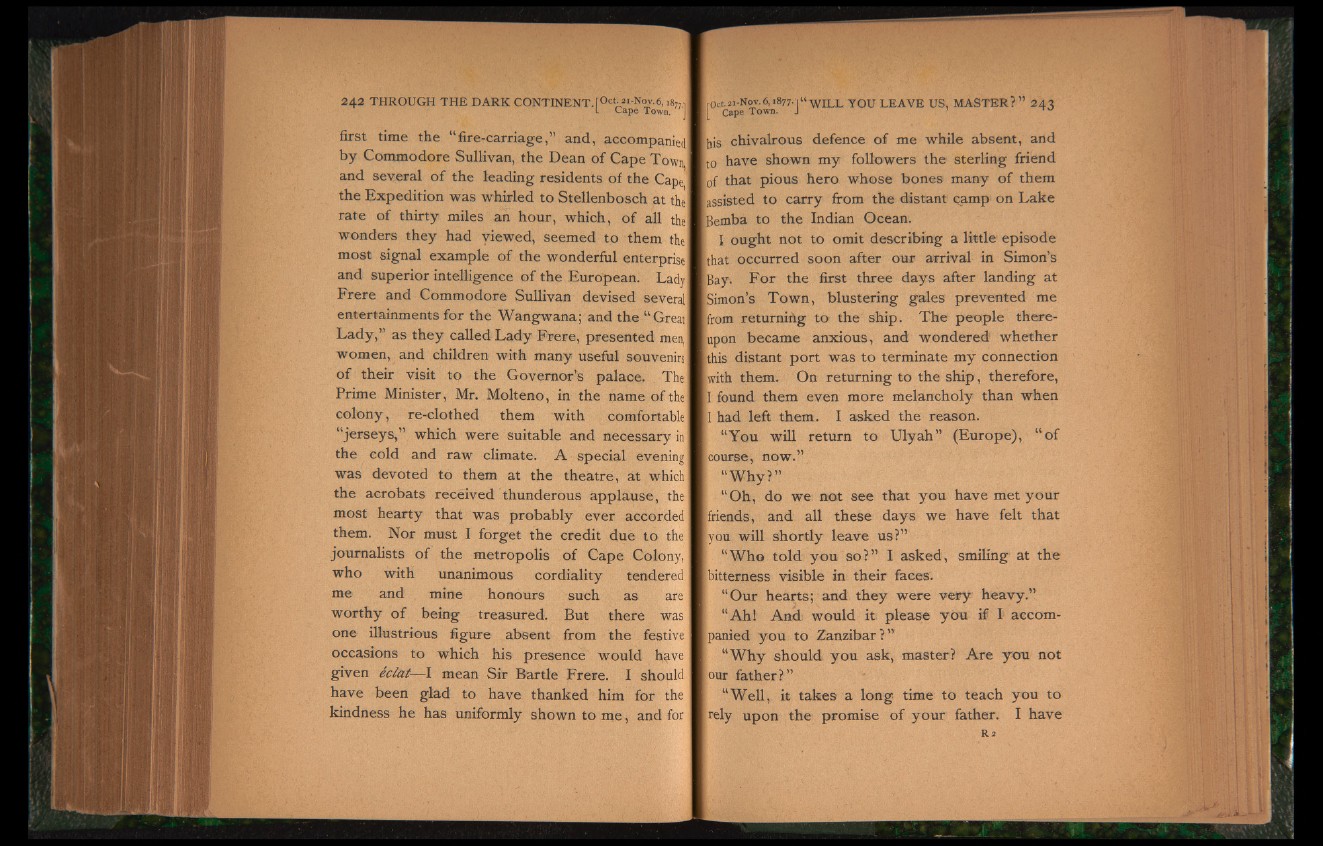
first time the “ fire-carriage,” and, accompanied]
by Commodore Sullivan, the Dean of Cape Town
and several of the leading residents of the Cape
the Expedition was whirled to Stellenbosch at the
rate of thirty miles an hour, which, of all the
wonders they had viewed, seemed to them the?
most signal example of the wonderful enterprise i
and superior intelligence of the European. Lady
Frere and Commodore Sullivan devised several
entertainments for the Wangwana; and the “Great'
Lady,” as they called Lady Frere, presented meal
women, and children with many useful souvenirs
of their visit to the Governor’s palace. The
Prime Minister, Mr. Molteno, in the name of the
colony, re-clothed them with comfortable]
“jerseys,” which were suitable and necessary in
the cold and raw climate. A special evening]
was devoted to them at the theatre, at which
the acrobats received thunderous applause, the I
most hearty that was probably ever accorded
them. Nor must I forget the credit due to the
journalists of the metropolis of Cape Colony,]
who with unanimous cordiality tendered I
me and mine honours such as are
worthy of being treasured. But there was
one illustrious figure absent from the festive
occasions to which his presence would have
given éclat—I mean Sir Bartle Frere. I should .
have been glad to have thanked him for the
kindness he has uniformly shown to me, and for
foct31-Nov.6,1877.'!uWILL YOU LEAVE US, MASTER?” 243
Cape Town. J ’ ™
jjjjg chivalrous defence of me while absent, and
to have shown my followers the sterling friend
[of that pious hero whose bones many of them
assisted to carry from the distant oamp on Lake
[Bemba to the Indian Ocean.
I ought not to omit describing a little episode
[that occurred soon after our arrival in Simon’s
[Bay. For the first three days after landing at
Simon’s Town, blustering gales prevented me
'from returning to the ship. The people thereupon
became anxious, and wondered whether
[this distant port was to terminate my connection
(with them. On returning to the ship, therefore,
jl found them even more melancholy than when
¡1 had left them. I asked the reason.
“You will return to Ulyah” (Europe), “ of
|course, now.”
“Why?”
“Oh, do we not see that you have met your
[friends, and all these days we have felt that
¡you will shortly leave us?”
“Who told you so?” I asked, smiling at the
[bitterness visible in their faces.
“Our hearts; and they were very heavy.”
“Ah! And would it please you if I accom-
jpanied you to Zanzibar?”
“Why should you ask, master? Are you not
[our father?”
“Well, it takes a long time to teach you to
rely upon the promise of your father. I have
R2